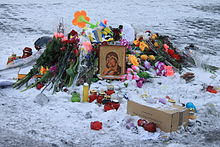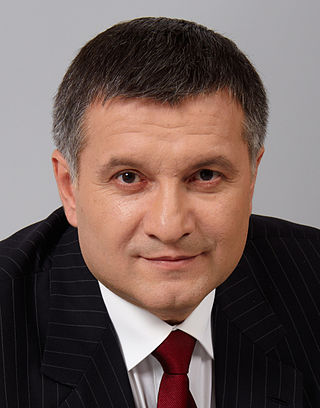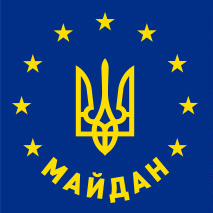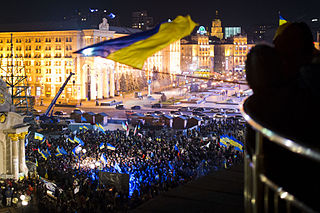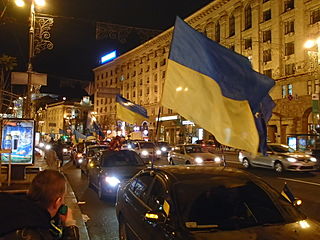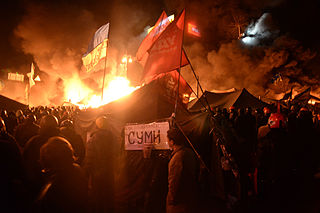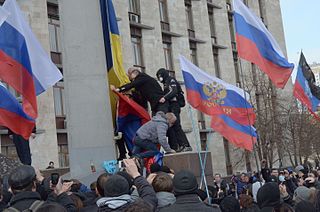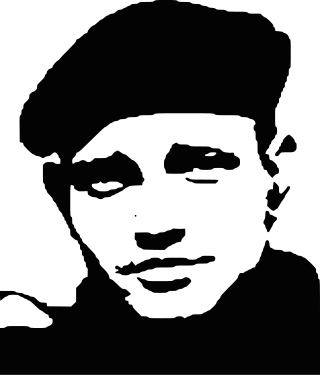| Nationality | Name | Details | Date of death | Cause of death/Reference |
|---|
 | Yuriy Verbytskyi uk | A scientist (seismologist) from the Geophysical Institute in Lviv. [20] Yury was a member of Lviv's climber society. After his death, the society proposed to name one of the Caucasian mountains after Verbytskyi—the idea was supported by the Georgian climber society which is currently looking for an unnamed mountain hill. [21] | 21 or 22 January 2014 | Verbytskyi was kidnapped from the Oleksandivsky Hospital together with Ihor Lutsenko on 21 January 2014. [22] His body was found on 22 January close to village Gnidyn of Boryspil Raion, with signs of torture. [23] However, the official cause of death was said to be hypothermia. [24] |
 | Pavlo Mazurenko uk | Participated in Euromaidan [25] | 21 December 2013 | According to his wife, as reported by the Ukrayinska Pravda, Pavlo Mazurenko (41 years old) was beaten up on 18 December 2013 by three law enforcement agents in the neighborhood of Borshchahivka (Mykilska). [26] According to police, he died as a result of a fight with employees of a private security company that were guarding the Colibris store in Kyiv. Police also claimed that Pavlo's wife stated he was not involved in Euromaidan protests. [27] Ukrainian UNIAN News Agency interviewed Pavlo's wife days after, and she commented her husband was beaten by "three men in black uniform and batons [...] more resembling interior ministry servicemen, or a private security company staff". She also claimed that the three ran away after beating Pavlo. [28] On 21 December, he visited a doctor who sent him to a hospital where Mazurenko was diagnosed with a concussion. [26] The same day he was hospitalized doctors found fractures to his skull. [26] On 22 December, Mazurenko died and his body was sent for forensic examination, after which he was diagnosed with two-way contagious bovine pleuropneumonia (lung plaque seen in bovine animals). [26] |
 | Serhiy Nigoyan | Born in the village of Bereznuvativka in Dnipropetrovsk Oblast. [29] The Nigoyan family moved from Armenia to Ukraine as refugees of the first Nagorno-Karabakh War. [30] Nigoyan came to Euromaidan on 8 December and was mostly involved in security. [29] | 22 January 2014 | Died on 22 January 2014 during clashes with the police on Hrushevskyi street. He suffered multiple gunshot wounds during a Berkut attack on the Hrushevskoho Street barricades. [29] [31] [32] On November 18, 2015 according to the head of the Special Investigations Unit of the Main Investigation Department of the Prosecutor General Sergei Gorbatyuk, Serhiy Nigoyan and Mikhail Zhiznevsky were killed at a distance of not less than three meters, while the law enforcement agencies of the protesters were at a distance of about 30 meters. |
 | Mykhailo Zhyznevskyi | Zhyznevskyi left Belarus for political reasons. In Ukraine, he lived and worked in Kyiv and later Bila Tserkva. [33] Was a member of the Ukrainian nationalist group, the UNSO. At Euromaidan, Zhyznevskyi was involved in security. [33] | 22 January 2014 | Died on 22 January 2014 during Berkut's action on barricades on Hrushevsky street where he was shot in the chest by a sniper. [31] [32] His funeral was attended by Euromaidan and opposition leaders; he was buried with the Ukrainian UNA-UNSO and Belarusian flags. [34] |
 | Roman Senyk | Senyk was born in Lviv Oblast and in the last few years lived in Turka. | 25 January 2014 | During a Berkut action on barricades on Hrushevskoho Street, a grenade tore his hand and made multiple wounds in his lower chest and lungs. [35] Hit with a metal bullet in the lung, he underwent several operations and had to have his arm amputated. [36] Having lost more than 3.5 litres of blood, he died in one of Kyiv's hospitals after multiple surgeries. [37] |
 | Bohdan Kalyniak | 52 years old from Kolomyia, Ivano-Frankivsk Oblast | 28 January 2014 | Died at a hospital in Ivano-Frankivsk on 28 January. Kolomyia Mayor Igor Sluzar said the man had come down with pneumonia during the clashes on Hrushevskoho Street in Kyiv where police used water cannons on protesters despite sub-zero temperatures. [36] |
 | Serhiy Synenko | AutoMaidan activist. Zaporizhia. | 13 February 2014 | In Zaporizhia, the gas tank of his car was shot at, causing it to explode and the car to engulf him in flames. Police stated the murder may have been motivated by his participation in Automaidan. [38] |
 | Serhiy Bondarev | Software engineer from GlobalLogic, Kyiv. Originally from Kramatorsk, Donetsky region | 18 February 2014 | 4 Gunshot wounds [39] |
 | Valeriy Brezdenyuk | Ukrainian painter, known for "paintings on the water". From Zhmerynka, Vinnytska Oblast., [40] [41] 50 year old. | 18 February 2014 | Killed during clashes by a gunshot wound to the back. [42] |
 | Serhiy Didych | Svoboda member. 44 years old. | 18 February 2014 | Died during the traffic incident while another protester was trying to break the police line on the truck. [43] |
 | Antonina Dvoryanets | From Brovary. Kyiv Oblast. 61 years old. [44] | 18 February 2014 | Participated in a picketing action. Beaten to death with clubs during clashes on Instytutska Street. [45] [46] |
 | Oleksandr Kapinos | From Ternopil Oblast, Svoboda member, 29 years old. | 18 February 2014 | Killed during clashes. [42] According to his friend, Oleksandr was hit by a grenade, then shot in the head with a rubber bullet at close range. Died in the hospital. |
 | Zurab Khurtsia | Georgian, 53 years old. | 18 February 2014 | Died from a heart attack on Maidan [45] [47] |
 | Volodymyr Kishchuk | From Zaporizhia Oblast. 58 years old. | 18 February 2014 | Shot during clashes with the riot police and Berkut on Hrushevskoho street. [48] [49] |
 | Andriy Korchak | Boryslav. Lviv Oblast 50 years old. | 18 February 2014 | Beaten by "Berkut" and died from a head injury in the hospital. [42] [50] |
 | Volodymyr Kulchytskyi | From Kyiv. 65 years old. | 18 February 2014 | Killed by two bullets during clashes. [42] |
 | Volodymyr Naumov | Member of Euromaidan self-defense units, from Donetsk Oblast. | 18 February 2014 | Body found on Trukhaniv Island near the Dnipro River. Police accused Naumov of suicide. [45] [51] |
 | Oleksandr Plekhanov | 22 year-old college student from Kyiv. | 18 February 2014 | Killed during clashes [52] |
 | Ihor Serdyuk | From Kremenchuk. 40 years old. | 18 February 2014 | Executed by "titushkas" thugs and "Berkut" next to Mariinskyi Park. He was building a barricade at the time. [39] |
 | Serhiy Shapoval | From Kyiv. 45 years old. | 18 February 2014 | Shot during clashes with the riot police and Berkut on Hrushevskoho street. [48] [49] |
 | Vyacheslav Veremiy | Journalist for Vesti newspaper; lost 1 eye during the Hrushevskoho Street riots weeks prior; survived by a 4-year-old son. [53] | 18 February 2014 | Pulled out of a taxi on his way home from work and then shot in the chest by government-paid thugs. [54] [55] A targeted killing. Driver was also severely beaten with lacerations to his legs. [56] |
 | Yakiv Zaiko | Former People's Deputy of Ukraine, Zhytomyr. 73 years old. | 18 February 2014 | Died from heart attack while being chased by "Berkut" special unit. [57] |
 | Andriy Chernenko | Slobodo-Petrivka, Poltava Oblast, 35 years old. Survived by 7-month-old daughter. | 19 February 2014 | [39] |
 | Yuriy Paskhalin | From Cherkasy Oblast. 30 years old. | 19 February 2014 | 3 Gunshot wounds in the back and 1 pneumatic injury [39] |
 | Dmytro Maksymov | From Kyiv, 19 years old. | 18 February 2014 | Injured by a grenade explosion, lost an arm, died of blood loss. [39] |
 | Vitaliy Vasyltsov | from Bila Tserkva. 1977 (age 45–46) | 19 February 2014 | Shot on Velyka Zhitomirska st. [58] |
 | Serhiy Baidovsky | from Lutsk, originally from Novovolynsk. 22 years old. | 20 February 2014 | Killed on Independence Square [58] |
 | Serhiy Bondarchuk | from Starokostiantyniv. 1961 (age 61–62) Teacher of Physics. [59] | 20 February 2014 | Killed by sniper fire [58] [59] |
 | Mykola Dziavulsky | Born in Krasnoyarsky Krai, Russia. Lived in Shepetivka, Khmelnytskyi Oblast. 1958 (age 64–65) Teacher of geography and biology | 20 February 2014 | Killed by sniper fire on Instytutska Street. [59] |
 | Ustym Holodnyuk | from Zbarazh, Ternopil Oblast, born in 1994 (19 years old) | 20 February 2014 | Shot in the head by sniper fire [59] |
 | Eduard Hrynevych | Volyn Oblast, born in 1985 (28 years old) | 20 February 2014 | Shot in the head by a sniper. Brought to St. Michael's Golden-Domed Monastery [39] |
 | Serhiy Kemsky | From Kerch, Crimea. 34 years old. | 20 February 2014 | Brought to St. Michael's Golden-Domed Monastery [39] |
 | Ihor Kostenko | Journalist from the newspaper Sportanalytic, geography student and contributor to the Ukrainian Wikipedia [60] from Buchach, Ternopil Oblast. 22 years old | 20 February 2014 | Brought to St. Michael's Golden-Domed Monastery [61] |
 | Ivan Kreman (Panteleyev) | From Kremenchuk, Poltava Oblast | 20 February 2014 | Killed by sniper fire [59] [62] |
 | Andrii Movchan | from Kyiv. 34 years old. Democratic Alliance activist | 20 February 2014 | Killed by sniper fire. According to a friend, Andrii was bringing food to Maidan when he was killed. [63] |
 | Roman Nikulichev | Kyiv, 21 years old | 20 February 2014 | [39] |
 | Dmytro Pahor | Khmelnytskyi, 21 y/o | 20 February 2014 | Shot in the head next to the SBU office in Khmelnitsky [64] |
 | Yuriy Parashchuk | Lived in Kharkiv, born in Talne, Cherkasy Oblast. Born in 1966 (47 y/o) | 20 February 2014 | Shot in the head and killed by sniper fire on Instytutska Street. [39] |
 | Anatoliy Korneyev | From Havrylivtsi, Khmelnytskyi Oblast | 20 February 2014 | Killed by sniper fire. [39] |
 | Andriy Sayenko | From Fastiv. 42 years old | 20 February 2014 | 7th Sotnia of Maidan Self-Defense. Killed by a sniper [65] |
 | Yosyp Shylinh | (1953-02-14) February 14, 1953 (age 69) From Drohobych | 20 February 2014 | Shot in the head by a sniper next to October Palace [39] |
 | Viktor Chmilenko | Borysivka, Bobrynets Raion 1961 (age 61–62) | 20 February 2014 | Killed by sniper fire [59] |
 | Vitaliy Smolinsky | Furmanivka village. From Cherkasy Oblast. | 20 February 2014 | Brought to St. Michael's Golden-Domed Monastery [39] |
 | Bohdan Solchanyk | From Stary Sambir, Lviv Oblast, Professor of Ukrainian Catholic University | 20 February 2014 | Brought to St. Michael's Golden-Domed Monastery [39] |
 | Igor Tkachuk | Znamensk, Kaliningrad Oblast (Russia) 1975 (age 47–48). Father of three children with the youngest only a year old. | 20 February 2014 | Killed by sniper fire. [59] |
 | Bohdan Ilkiv | Shirets, Lviv Oblast, 51 years old | 22 February 2014 | Shot twice in the stomach on Maidan. Died in the hospital. [66] |
 | Roman Tochyn | Khodoriv 1970 (age 52–53), Svoboda party member | 20 February 2014 | Shot in the head by a sniper. [59] |
 | Oleksandr Tsariok | Kalinin, Vasylkiv Raion, Kyiv Oblast | 20 February 2014 | Killed by sniper fire [59] |
 | Oleh Ushnevych | Drohobych 1982 (age 40–41) | 20 February 2014 | Killed by sniper fire [59] |
 | Roman Varenytsia | from Yavoriv Raion. (1978-12-14) December 14, 1978 (age 44) | 20 February 2014 | Killed by sniper fire [58] [59] |
 | Nazar Voytovych | A 17-year-old from Travneve village, Ternopil Oblast | 20 February 2014 | Brought to St. Michael's Golden-Domed Monastery [39] |
 | Anatoliy Zhalovaha | Lviv, born in 1980 | 20 February 2014 | Brought to St. Michael's Golden-Domed Monastery [39] |
 | Anatoliy Zherebnyh | Rudky, Lviv Oblast | 20 February 2014 | Brought to St. Michael's Golden-Domed Monastery [39] |
 | Bohdan Vaida | Letnya village, Lviv Oblast, 48 years old | 20 February 2014 | Shot in the chest by a sniper [39] |
 | Volodymyr Chaplinsky | Obukhiv, born in 1979 (34 y/o) | 20 February 2014 | Shot in the neck by a sniper [39] |
 | Ihor Dmytriv | Kopanky village, Ivano-Frankivsk Oblast, 30 years old | 20 February 2014 | Shot in the chest by a sniper [39] |
 | Andriy Dyhdalovych | Sokilnyky, Pustomyty Raion, Lviv Oblast, born in 1973 | 20 February 2014 | Shot by a sniper while covering a friend. [39] |
 | Roman Hurik | Ivano-Frankivsk, born in 1994 | 19 February 2014 | Shot in the head by a sniper [39] |
 | Vitaliy Kotsyuba | Lviv, 32 years old | 20 February 2014 | [39] |
 | Oleksandr Khrapachenko | Theatre director from Rivne, originally from Zdolbunov, born in 1987 (26 years old) | 20 February 2014 | Shot in the head and killed by sniper fire. [39] |
 | Vasyl Moysey | Born March 23, 1992 (21 years old) in Zubrets, Buchach Raion, Ternopil Oblast. He was living in Kivertsi, Volyn Oblast while a 4th year student at Lutsk University Institute of Human Development "Ukraine". | 20 February 2014 | Shot in the chest by a sniper on the morning of February 20, 2014. He had arrived with the Volyn Self-Defense unit on the Maidan in Kyiv on the night of February 18. He died at the 17th hospital in Kyiv from the gunshot wound, despite having worn a bulletproof vest. [67] [39] [68] |
 | Valeriy Opanasyuk | Rivne, born in 1971. Had 4 children. | 20 February 2014 | Shot by a sniper [39] |
 | Volodymyr Pavliuk | Kolomyia, Ivano-Frankivsk Oblast, about 40 years old | 20 February 2014 | Shot 4 times, once in the head. Died in the hospital [39] |
 | Leonid Polyansky | About 35 years old | 20 February 2014 | Body found in morgue on Oranhereyna Street [39] |
 | Oleksandr Shcherbaniuk | From Chernivtsi, Batkivshchina party member. Afghanistan war veteran. | 20 February 2014 | Shot in the heart by a sniper [39] |
 | Maksym Shymko | From Vinnytsia, 33 years old | 20 February 2014 | Shot by a sniper [39] |
 | Ivan Tarasiuk | Olyka village, Volyn Oblast, born in 1993, 21 years old | 20 February 2014 | Killed by a sniper. [39] |
 | Ivan Bliok | Horodok, Lviv Oblast, born in 1973 (40 y/o) | 20 February 2014 | Shot in the heart by a sniper [39] |
 | Mykola Pankiv | Lapayivka, Lviv Oblast, 39 years old | 20 February 2014 | Shot in the chest [39] |
 | Vasyly Prohorskiy | Kyiv, 33 years old | 18 February 2014 | Went to Maidan on Feb 18, was missing, found dead and tortured. [39] |
 | Viktor Shvets | Hatne village, Kyiv Oblast, born in 1957 | 19 February 2014 | Shot in the stomach 3 times [39] |
 | Volodymyr Zherebniy | Born in Vyshnya village (moved to Rudky), Lviv Oblast, born in 1985 (28 years old) | 20 February 2014 | Shot in the neck by a sniper [69] |
 | Liudmyla Sheremet | Khmelnytskyi, 73 years old | 22 February 2014 | Shot in the head by an SBU officer on 19 February 2014 during the storming of SBU office in Khmelnitsky. Died in the hospital three days later. [70] [71] |
 | Yevhen Kotliar | Kharkiv, born in 1980 (33 y/o) | 20 February 2014 | Shot on Instytutska Street. [72] |
 | Ivan Horodniuk | Berezne, Rivne Oblast, 29 years old | 19 February 2014 | On 18 February, was beaten by "Berkut" and soaked from a water cannon. Returned home 19 February and died from a heart attack same night. [39] |
 | Andriy Tsepun | Kyiv, 35 years old | 21 February 2014 | EuroMaidan activist, found beaten to death. [73] |
 | Maksym Mashkov | | 21 February 2014 | Died in the hospital [73] |
 | Maksym Horoshishin | Hrushivka village, Cherkasy Oblast, 25 years old | 18 February 2014 | Died from gas grenade poisoning during the clashes on Instytutska Street. [74] |
 | Georgiy Arutiunyan | Georgian Citizen of Armenian descent, lived in Rivne, born in 1960. | 20 February 2014 | Shot by a sniper. Brought to St. Michael's Golden-Domed Monastery [39] |
 | Volodymyr Melnychuk | Lived in Kyiv, 40 years old | 20 February 2014 | Was helping Euromaidan activists. Shot in the neck by a sniper while standing next to his wife. [75] |
 | David Kipiani | Republic of Georgia | 21 February 2014 | Found wounded, likely shot by a sniper, next to the barricades on Khmelnytsky Street, died in the emergency vehicle. [76] |
 | Victor Chernets | Podibna, Cherkasy Oblast, born in 1977 | 19 February 2014 | Died from injury caused by the collision with an unidentified SUV while guarding an improvised checkpoint built to block special units and thugs on Kyiv-Odesa highway. The SUV was storming the checkpoint to open the way for the Interior troops. [77] |
 | Oleksandr Scherbatyuk | From Chernivtsi; 46 years old; Jewish; Afghan war veteran | 20 February 2014 | Killed by snipers. [78] |
 | Volodymyr Topiy | Vyshnya village, Lviv Oblast, 57 years old | 18 February 2014 | Died during the fire at the Trade Unions Building [79] |
 | Volodymyr Zubok | Chernihiv Oblast, born in 1985 | 20 January 2014 | [79] |
 | Viktor Khomyak | Euromaidan activist | 27 January 2014 | Body found hung on the Christmas Tree on the Maidan. Details are unknown. [79] |
 | Viktor Prokhorchuk | born in 1975 (38 years old) | 18 February 2014 | Member of the self-defense. Was found with his throat slit on the backyard of a Kreshchatik house a week after disappearance on 18 February. [79] |
 | Andriy Zhanovachiy | born in 1964 | 20? February 2014 | [79] |
 | Volodymyr Boykiv | born in 1955 | 19 February 2014 | [79] |
 | Oleksiy Bratushko | From Sumy, born in 1971 | 20 February 2014 | Shot by a sniper on Instytutska Street. [79] |
 | Ihor Batchinsky | 30 years old | 25 February 2014 | [79] |
 | Mykola Tarshchuk | born in 1975 | 20 February 2014 | Shot in the neck by a sniper [79] |
 | Mykola Semisiuk | From Khmelnytskyi, born in 1986 | 20 February 2014 | Shot in the head by a sniper [79] |
 | Ihor Pehenko | Vyshhorod, Kyiv Oblast, born in 1970, 43 years old | 20 February 2014 | Shot in the neck by a sniper [80] |
 | Vladyslav Zubenko | "Svoboda" Party activist from Kharkiv, born in 1991, 22 years old | 28 February 2014 | Shot by a sniper 20 February, died from the wounds in the hospital. [81] |
 | Artem Mazur | 26 years old | 3 March 2014 | Sustained heavy head trauma, died from the wounds in the hospital. [82] |
 | Taras Slobodian | From Ternopil Oblast, 31 years old | 5 March 2014 | Body was found in the woods of Sumskiy Forest [83] in October 2013? (query date - precedes date of death) [84] |
 | Mykhailo Kostyshyn | Nyzhniy Strutyn, Ivano-Frankivsk Oblast | 26 February 2014 | Was on Maidan from the first days. Beaten to death in January 2014, was in the hospital for almost a month but did not recover. [85] |
 | Artur Khuntsaar | From Ivano-Frankivsk, born in 1984 (29 years old) | 18 February 2014 | Killed by a sniper. |
 | Yuriy Nechiporuk | From Khmilnyk, Vinnytsia Oblast, 30 years old | 18 February 2014 | Euromaidan activist, kidnapped and killed by thugs. Sustained 20 knife wounds. [86] |
 | Anatoliy Kurach | From Rivne | 21 February 2014 | Died because of a head trauma received on Maidan [87] |
 | Oleksandr Badera | From Volodymyr-Volynsky, born in 1948 (66 years old) | 28 January 2014 | Died because of trauma received 22 January 2014 on Hrushevskoho Street. |
 | Oleksandr Baliuk | From Lypovy village, Zhytomyr Oblast, born in 1974 (39 years old) | 20 February 2014 | Received a firearm wound to the chest. Was trying to rescue another person. [88] |
 | Reshat Ametov | From Crimea, born in 1975. Father of 3 children. | 3 March 2014? | Participated in the protests against separatism movement. Disappeared 3 March, found on 15 March tortured to death. [89] |
 | Vyacheslav Vorona | Born in Prypyat, lived in Kyiv | 9 March 2014 | Received a head injury during the clashes, was brought to the intensive care, never recovered from coma. |
 | Vasyl Aksenin | From Letyache, Ternopil Oblast, born in 1961. | 12 March 2014 | Was heavily wounded on 20 February in Kyiv. At the end of February he was sent for treatment to Poland, but did not survive. |
 | Olha Bura | From Rypne, Lviv Oblast, born in 1986. | 10 March 2014 | Participated in the protests since the end of November. Died at a hospital from the serious injuries received during the clashes. |
 | Vasyl Sheremet | From Lanchyn, Ivano-Frankivsk Oblast, born in 1949 (64 y/o). | 7 March 2014 | Died from wounds sustained during the clashes with "Berkut" |
 | Ivan Nakonechny | From Kyiv, born in 1931 (82 years old). | 7 March 2014 | Navy officer. Was on the Euromaidan since 30 November. Died from wounds sustained during the clashes on Instytutska Street on 19 February 2014. |
 | Petro Hadzha | Lived in Kyiv, born in Rakhiv, Zakarpattia Oblast, born in 1966 (47 years old). | 22 March 2014 | Was on the Euromaidan since its first days. Member of the 8th Sotnia. Died in the hospital due to gas poisoning which he had sustained during the clashes on Hrushevskoho Street. |
 | Dmytro Chernyavskiy | Born in the Donetsk Oblast. Studied at Lviv National University, born in 1992 (22 years old). | 13 March 2014 | On 13 March, participated in the meeting for the unity of Ukraine in the city of Donetsk. Was stabbed to death in clashes with pro-Russian activists. |
 | Roman Olikh | Born in the village of Hybalivka, Vinnytsia Oblast. | 15 February 2014 | Came to Maidan in January. On the 6th of February he was injured and taken to a hospital in Kyiv. Fell into coma and never recovered. |




